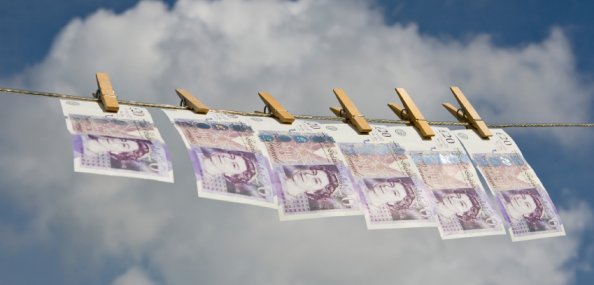
What is 'Money Laundering'
Money Laundering is a term used to describe an act of concealing money obtained using illegal methods ie: Theft, Extortion, Drugs Trafficking etc and converting it into money that appears to have originated from a legitimate source. In doing this there will be no links/traces to any criminal/illegal activity.
Criminals need to discover ways of reducing the traceability of what can be described as 'Dirty' money. The UK's financial system is the perfect place to do this. Banks and financial institutions are used by criminals to try and 'lose' the paper trail. As most of the transactions are completed in cash, criminals have to find ways of turning 'Dirty' money into 'Clean' money.
Are there any Money Laundering Regulations ?
The answer to this is yes. Back in December 2007 the 'Money Laundering Regulations 2007' came into force. These regulations were put in place to help protect financial institutions, and banks etc from criminal activity. There are many different 'types' of business that the money laundering regulations will apply to including accountants, estate agents, company formation agents, company service providers like mail forwarding companies, and anyone operating within the financial sector.
Do I need to register under the 'Money Laundering Regulations' and How Do I Do It ?
Should you come under the category of a business that needs to be regulated then you will need to register under the Money Laundering Regulations.
There are different governing bodies to register with depending upon the industry/nature of your business.
Such governing bodies include:-
H M R C
Office of Fair Trading
Financial Conduct Authority
Institute of Chartered Accountants in England and Wales
Most governing body websites have downloadable application forms for you to complete and submit online providing you meet all of the relevent criteria. The time taken to process your application is entirely dependant on the individual governing body.
Appointing a Money Laundering Reporting Officer
A money laundering reporting officer will need to be appointed as a first point of contact for your employees who suspect fraudulent/money laundering activity.
Once money laundering activities have been reported it is then up to the Money Laundering Reporting Officer to review all of the evidence and make the decision as to whether it needs to be escalated to the Serious Organised Crime Agency. Once escalated the Money Laundering Reporting Officer will liaise with the Serious Organised Crime Agency and follow advice and instructions from them as to the next course of action to take.
If your business is run by just yourself, then you are by definition, the Money Laundering Reporting Officer as you are the person directly responsible for reporting any suspisious transactions.
Individual ID Checking - Customer Due Diligence
Before you enter into any financial transactions with your customers you have to ID check them to ensure they are the person they claim to be.
You will need to obtain the following information from them:-
Name (full name, including middle name if they have one)
Current Address
Date Of Birth
Passport or Driving Licence Number
Anti Money Laundering ID checking electronically will tell you various pieces of information about your customers, not available by simple paper based checks, including whether they are deceased, on a politically exposed persons sanctions list, or a foreign office sanctions list etc.
It is imperative that you keep records of all methods used when carrying out due diligence checks on your customers. These include hard copies of any documents that have been requested. Keep as much information as is possible to show that you have fully complied with the money laundering regulations. Should there ever be a need to either investigate one of your customers, or indeed you have an audit from your governing body it is extremely important that you have as much information as is possible to show your compliance with the regulations.
Anti Money Laundering Policy Document
The anti money laundering policy document outlines the procedures your business will follow to prevent money laundering taking place. It is recommended that all businesses, large or small, have a policy document and that it is reviewed at regular intervals by all employees.
Dependant on the nature of your business your Anti Money Laundering Policy Document should contain the following:-
Details of your Money Laundering Officer
Details of your customer ID/due diligence checks
Customer verification/identification procedures
Money Laundering prevention procedures
Details of individuals and their responsibilities
Employee training procedures (If applicable)
This can often take time to produce - either your own time, or time from a solicitor - which often costs £150+ per hour. For only £227+VAT we can supply you with a 15 to 20 page document detailing the above information in a bound document and also supplied as an Adobe Acrobat PDF document on a DVD for your permanent record.
